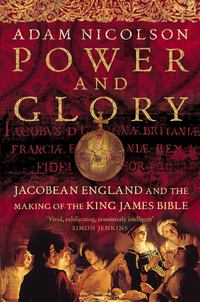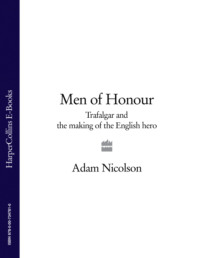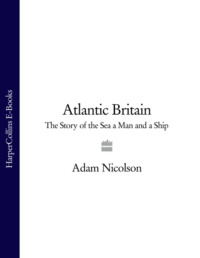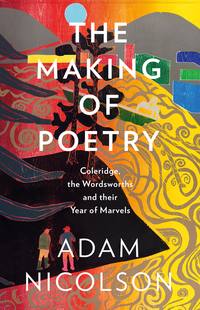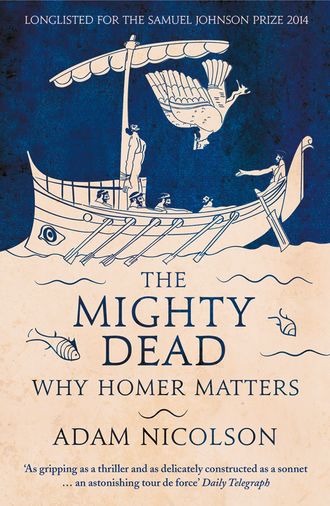
Полная версия
The Mighty Dead: Why Homer Matters
For all the Goncourts’ wit and scepticism, I am on the side of Renan, and Hippolyte Taine, and Sainte-Beuve, and even the ludicrous Comte de Saint-Victor. Homer, the most miraculous and ancient of survivals in our culture, comes from a time of unadorned encounter with the realities of existence. It is absurd now to call the sea ‘unharvestable’, but it is also beautiful and moving. For all of Saint-Victor’s despised sententiousness, he was right in this. Homer’s simplicity, his undeniably straight look, is a form of revelation. Its nakedness is its poetry. There is nothing here of ornamentation or prettiness, and that is its value. ‘Each time I put down the Iliad,’ the American poet Kenneth Rexroth wrote towards the end of his life,
after reading it again in some new translation, or after reading once more the somber splendor of the Greek, I am convinced, as one is convinced by the experiences of a lifetime, that somehow, in a way beyond the visions of artistry, I have been face to face with the meaning of existence. Other works of literature give this insight, but none so powerfully, so uncontaminated by evasion or subterfuge.
This book is driven by a desire to find the source of that directness and that understanding.
* * *
In the early autumn of 1816, John Keats was not yet twenty-one. He had been writing poetry for two years, living with other medical students in ‘a jumbled heap of murky buildings’ just off the southern end of London Bridge, working as a ‘dresser’ – a surgeon’s assistant – in Guy’s Hospital. He was miserable, good at his job but hating it, out of sorts with ‘the barbarous age’ in which he lived, filled with a hunger for life on a greater scale and of a deeper intensity than the ordinariness surrounding him could provide.
At school in Enfield, his headmaster’s son Charles Cowden Clarke, who had ambitions himself as a poet and littérateur, had introduced him to history and poetry, immersing him in Shakespeare, Milton and Wordsworth. Clarke gave him the first volume of the great Elizabethan English epic, Edmund Spenser’s Faerie Queene, and, as Clarke remembered later in life, Keats took to it
as a young horse would through a spring meadow – ramping! Like a true poet, too – a poet ‘born, not manufactured’, a poet in grain, he especially singled out epithets, for that felicity and power in which Spenser is so eminent. He hoisted himself up, and looked burly and dominant, as he said, ‘what an image that is – “sea-shouldering whales”!’
When Keats at this age saw the wind blowing across a field of barley still in the green, he jumped on a stile and shouted down at Clarke, ‘The tide! The tide!’ Here was a boy, born the son of a London ostler, hungry for depth, for a kind of surging reality, for largeness and otherness which only epic poetry could provide. Poetry for him, as Andrew Motion has said, was ‘both a lovely escape from the world and a form of engagement with it’. It was not about prettiness, elegance or decoration but, in Motion’s phrase, ‘a parallel universe’, whose reality was truer and deeper than anything in the world more immediately to hand. Poetry gave access to a kind of Platonic grandeur, an underlying reality which everyday material life obscured and concealed. It is as if Keats’s sensibility was ready for Homer to enter it, a womb prepared for conception. All that was needed was for Homer to flood into him.
Perhaps at Clarke’s suggestion, he had already looked into the great translation of Homer made by the young Alexander Pope between about 1713 and 1726, the medium through which most eighteenth- and early-nineteenth-century Englishmen encountered Homer. But it was a translation that came to be despised by the Romantics as embodying everything that was wrong in the culture of the preceding age: interested more in style than in substance, ridiculously pretty when the Homeric medium was truth, a kind of drawing-room Homer which had left the battlefield and the storm at sea too far behind.
Where, for example, Homer had said simply ‘the shepherd’s heart is glad’, Pope had written
The conscious swains, rejoicing in the sight
Eye the blue vault, and bless the useful light.
From the point of view of the 1780s, Pope’s Homer was about as Homeric as a Meissen shepherdess with a lamb in her lap.
This wasn’t entirely fair to Pope. His preface to the Iliad, published in 1715, is one of the most plangent descriptions ever written in English of the power of the Homeric poems. Northern European culture had been dominated for too long by the processed and stable maturity of Virgil’s Aeneid, the Latin epic par excellence, written in about 20 BC. Homer represented an earlier stage in human civilisation, a greater closeness to nature, to the potency of the sublime, a form of poetry which was not to be admired from afar but which would bind up its reader or listener in a kind of overwhelming absorption in its world. ‘No man of true Poetical Spirit,’ the young Pope had written, ‘is Master of himself while he reads him; so forcible is the poet’s Fire and Rapture.’ Translation was not a calm carrying over of the meaning in Greek into the meaning in English, but a vision of the processes of the mind as a flaming crucible in which the sensibilities of translator and translated were fused into a new, radiant alloy.
Pope may have been the darling of the establishment. In his preface, he thanked a roll-call of the eighteenth-century British great – Addison, Steele, Swift, Congreve, a string of dukes, earls, lords and other politicians – but for all that, his entrancement with Homeric power is not in doubt. Homer was like nature itself. He was a kind of wildness, ‘a wild paradise’ in which, as the theory then was, the great stories and figures he described came into being.
What he writes is of the most animated Nature imaginable; every thing moves, every thing lives, and is put in Action … The Course of his Verses resembles that of the Army he describes,
They pour along like a Fire that sweeps the whole Earth before it.
This inseparability of Homer and his world is what excited Pope. It seemed to him like a voice from the condition of mankind when it was still simple, quite different from ‘the luxury of succeeding ages’. Poetic fire was the essential ingredient. ‘In Homer, and in him only, it burns every where clearly, and every where irresistibly.’
Pope grasped the essential point: unlike Virgil, Homer is no part of the classical age, has no truck with judicious distinction or the calm management of life and society. He precedes that order, is a pre-classic, immoderate, uncompromising, never sacrificing truth for grace.
Virgil bestows with a careful Magnificence: Homer scatters with a generous Profusion. Virgil is like a River in its Banks, with a gentle and constant Stream: Homer like the Nile, pours out his Riches with a sudden Overflow.
In this preface to the Iliad, Pope can lay claim to being the greatest critic of Homer in English. But what of his translation? Was he able to bear out this deep understanding of Homer’s ‘unaffected and equal Majesty’ in the translation he made? Perhaps not. Take for example a moment of passionate horror towards the end of the Iliad. For most of the poem Achilles has been in his tent, nursing his grievance and loathing against Agamemnon, but now that Patroclus, the man he loved, has been killed by Hector, Achilles is out to exact revenge. He is on his blood-run, gut-driven, pitiless, the force of destiny. Among his enemies on the field, he encounters a young Trojan and looks down on him with the vacancy of fate. The young warrior stares back up:
In vain his youth, in vain his beauty pleads:
In vain he begs thee, with a suppliant’s moan
To spare a form and age so like thy own!
Unhappy boy! no prayer, no moving art
E’er bent that fierce inexorable heart!
While yet he trembled at his knees, and cried,
The ruthless falchion [a single-edged sword] oped his tender side;
The panting liver pours a flood of gore,
That drowns his bosom till he pants no more.
‘It is not to be doubted,’ Pope had written in his own preface, ‘that the Fire of the Poem is what a Translator should principally regard, as it is most likely to expire in his managing.’ But that is what has happened here. Apart from what Leigh Hunt, the great liberal editor of the Examiner, called Pope’s trivialising, ‘cuckoo-song’ regularity, he has lost something else: Homer’s neck-gripping physical urgency. In the Greek everything is about the body. The boy crawls towards Achilles and holds him by the knees. It is Achilles’s ears that are deaf to him, his heart and his mind that remain unapproachably fierce. The boy puts his hands on Achilles’s knees to make his prayer, and then the sword goes into the liver, the liver slipping out of the slit wound, the black blood drenching the boy’s lap and ‘the darkness of death clouding his eyes’. Nothing mediates the physical reality. Homer’s nakedness is his power, but Pope has dressed it. ‘The panting liver … pants no more’: that is so neat it is almost disgusting, as if Pope were adjusting his cuffs while observing an atrocity. Dr Johnson called the translation ‘a treasure of poetical elegances’. That was the problem.
Keats had undoubtedly read Homer in Pope’s translation; there are echoes of Pope’s words in what Keats would write himself. But he was ready for something else. His life was constrained in the crowded and meagre streets of south London, filled with the ‘money-mongering pitiable brood’ of other Londoners. He had been to Margate with his brothers and had seen ‘the ocean’ there in the pale shallows of the North Sea, but nowhere further. In early October 1816 he went for the evening to see his old friend Charles Cowden Clarke, who was living with his brother-in-law in Clerkenwell. Cowden Clarke had been lent a beautiful big early folio edition of the translation of the Iliad and the Odyssey made by the poet and playwright George Chapman.
The two men began to look through its seventeenth-century pages. Clarke’s friend Leigh Hunt, the heroic editor of the Examiner, in which he had just published the first of Shelley’s poems to be printed, had already praised Chapman in the August issue, for bottling ‘the fine rough old wine’ of the original. In the next few days Keats was about to meet Hunt himself, with the possibility in the air that he too might swim out into the world of published poetry and fame. The evening was pregnant with the hope of enlargement, of a dignifying difference from the mundane conditions of his everyday life. To meet Homer through Chapman might be an encounter with the source.
It is touching to imagine the hunger with which Keats must have approached this book, searching its two-hundred-year-old pages for something undeniable, the juice of antiquity. The two of them sat side by side in Clarke’s house, ‘turning to some of the “famousest” passages, as we had scrappily known them in Pope’s version’. Chapman had produced his translations – almost certainly not from the Greek but with the help of Latin and French versions – between 1598 and 1616. It is a repeated experience with Homer that he seems to haunt the present, and Chapman himself had met him one day in Hertfordshire, not far from Hitchin where Chapman had been born, Homer masquerading as ‘a sweet gale’ as Chapman walked on the hills outside the town. It was a moment of revelation and life-purpose for him, so that later he could say: ‘There did shine,/A beam of Homer’s freer soul in mine.’ The eighteenth century had not admired it. Pope had called it ‘loose and rambling’, and Chapman himself ‘an Enthusiast’ with a ‘daring fiery Spirit that animates his Translation, which is something like what one might imagine Homer himself would have writ before he arriv’d to Years of Discretion’. Dr Johnson had dismissed it as ‘now totally neglected’. But Coleridge had rediscovered it. In 1808 he sent a copy of Chapman’s Homer to Sara Hutchinson, Wordsworth’s sister-in-law, the woman he loved. ‘Chapman writes & feels as a Poet,’ he wrote, ‘– as Homer might have written had he lived in England in the reign of Queen Elizabeth … In the main it is an English Heroic Poem, the tale of which is borrowed from the Greek – …’
Chapman’s distance, his rough-cut unaffectedness, stood beyond the refinements of the Enlightenment, as if he were the last part of the old world that Homer had also inhabited, before politeness had polluted it. Here the Romantics found Achilles as the ‘fear-master’, and horses after battle which liked to ‘cool their hooves’. Cowden Clarke and Keats were hunched together over pages that were drenched in antiquity. Ghosts must have come seeping out of them.
Something that had seemed quaint to the eighteenth century now seemed true to the two young men. They pored over Chapman together. ‘One scene I could not fail to introduce to him,’ Cowden Clarke wrote later,
the shipwreck of Ulysses, in the fifth book of the ‘Odysseis’ [Chapman’s transliteration of the Greek word for Odyssey], and I had the reward of one of his delighted stares, upon reading the following lines:
Then forth he came, his both knees falt’ring, both
His strong hands hanging down, and all with froth
His cheeks and nostrils flowing, voice and breath
Spent to all use, and down he sank to death.
The sea had soak’d his heart through.
It is the most famous meeting between Homer and an English poet. Keats had read and stared in delight, shocked into a moment of recognition, of what the Greeks called anagnōrisis, when a clogging surface is stripped away and the essence for which you have been hungering is revealed.
At this stage Odysseus has been at sea for twenty days. For nearly two hundred lines he is churned through the pain Poseidon has wished on him.
Just as when, in the autumn, the North Wind drives the thistle tufts over the plain and they cling close to each other, so did the gales drive the raft this way and that across the sea.
The sea is never more vengeful in these poems, never more maniacally driven by violence and rage. The raft is overturned and broken, the giant surf hammers on flesh-shredding rock. It is one of Odysseus’s great tests. His name itself in Greek embeds the word odysato, meaning ‘to be hated’, and that adjective appears twice in this storm. He is the hated man on the hateful sea. This is his moment of suffering, and the sea he sails on is loathing itself.
Throughout the Odyssey he is the man of many parts, inventive, ingenious, with many skills and many gifts, but here is merely polytlas, the man who dares many things, suffers many things and endures many things. Only when a goddess-bird and then Athene herself come to his aid can he finally drag himself to the shore.
Here in a virtually literal translation is what Homer says as Odysseus emerges from the surf:
he then bent both knees
and his strong hands-and-arms; for sea had killed his heart.
Swollen all his flesh, while sea oozed much
up through mouth and nostrils, he then breathless and speechless
lay scarcely-capable, terrible weariness came to him.
The Greek word Chapman translated in The sea had soak’d his heart through – the phrase which Keats loved so much – is dedmēto, which means overpowered or tamed. It comes from a verb, damazo, of immensely ancient lineage, its roots spoken in the steppelands of Eurasia at least six thousand years ago, used to describe the breaking-in of animals and later the bending of metal to your desires and needs. It is essentially the same word as ‘tame’ in English, or domo in Latin, the word for reduction, to kill in a fight, to domesticate and dominate. But in the Iliad it also appears as a word for seduction, or more likely the rape of girls. Young girls, enemies, heifers and wives are referred to in Homer by words that come from the same stem. So Odysseus here is tamed and unmanned by the sea. The sea has done for him. As a hero reduced to the condition of a heifer, his heroic willpower temporarily overcome, he is no better than a corpse, bloated, destroyed, owned, possessed and dominated.
Pope, encased in the language of politesse, fell short when faced with this challenge:
his knees no more
Perform’d their office, or his weight upheld:
His swoln heart heaved; his bloated body swell’d:
From mouth and nose the briny torrent ran;
And lost in lassitude lay all the man.
On a sofa? you might ask.
Others have tried and failed: ‘For the heart within him was crushed by the sea,’ wrote Professor A.T. Murray in 1919; ‘Odysseus bent his knees and sturdy arms, exhausted by his struggle with the sea,’ was E.V. Rieu’s Penguin post-war bestseller prose version in 1946; ‘his very heart was sick with salt water’, wrote the great American scholar-poet Richmond Lattimore in 1967; ‘The sea had beaten down his striving heart,’ his successor Robert Fagles in 1996.
Keats was right. None approaches ‘The sea had soak’d his heart through,’ perhaps because Chapman’s English has absorbed the vengeful nature of the sea Odysseus has just experienced; has understood that his soul is as good as drowned; has not lost the governing physicality of the Homeric world, so that Odysseus’s heart appears as the organ of pain; and is able to summon a visual image of a marinaded corpse, blanched and shrivelled from exposure to the water, as white as tripe. Chapman had understood dedmēto: Odysseus’s sea-soaked heart is a heart with the heart drained out of it.
Clarke and Keats read Chapman together all night, and at six in the morning Keats returned to his Dean Street lodgings – his ‘beastly place in dirt, turnings, and windings’ – with Chapman looming in his mind. On the journey home across London he had begun to frame the sonnet which on arrival he wrote down. The manuscript, which he paid a boy to take over to Cowden Clarke that morning, so that it was on his breakfast table by ten o’clock, survives. The big, loopingly written words of that first morning text are not quite the same as what is usually printed.
On the first looking into Chapman’s Homer
Much have I travell’d in the Realms of Gold
And many goodly States and Kingdoms seen;
Round many Western islands have I been,
Which Bards in Fealty to Apollo hold.
Oft of one wide expanse had I been told,
Which low deep brow’d Homer ruled as his Demesne:
Yet could I never judge what Men could mean,
Till I heard Chapman speak out loud, and bold.
Then felt I like some Watcher of the Skies
When a new Planet swims into his Ken,
Or like stout Cortez, when with wond’ring eyes
He star’d at the Pacific, and all his Men
Look’d at each other with a wild surmise –
Silent upon a Peak in Darien –

It was the first great poem he wrote. And it is a poem about greatness, not about first reading Homer; nor even about first reading Chapman’s Homer; it’s about first looking into Chapman’s Homer and, from one or two fragments and passages, understanding for the first time what Homer meant. It is as if that big 1616 folio were a sort of aquarium into which he and Clarke had peered in amazement, looking up at each other as they found the beauties and rarities swimming in its depths. No other version had given Keats this plunging perspective into the ancient. Politeness had dressed Homer in felicity, when his underlying qualities are more like this: martial, huge, struggling through jungle, dense, disturbing and then providing that moment of revelatory release, of a calm pacific vision emerging on to what had been fields of storm or battle. Men had assured Keats that Homer possessed such a realm, but he had been unable to see it in the translations he knew. Here at last, though, was the moment when, cresting a rise, a new and deeper, ineffably broad landscape had opened in front of him. Homer might be dressed up as a cultural convenience, a classic, but in truth he is not like that. He is otherness itself: impolite, manly, cosmic, wild, enormous.
Keats made a mistake: it was Vasco Núñez de Balboa, not Cortez, who first sighted the Pacific Ocean. He didn’t correct that, but when he came to revise this poem for publication he did change a word or two, most importantly the seventh line. In the first early-October-morning version, after his night of revelation, it had been
Yet could I never judge what Men could mean,
which acts as the core of the poem, the rejection of the instruction and learning he had received, substituting it with the vast scale of the new understanding that Chapman had given him. For publication, he replaced that with
Yet did I never breathe its pure serene
which is politer and not entirely concordant with what the rest of the poem aims to mean. Further than that, he had borrowed the verb and the key adjectival noun from Pope’s Iliad:
The troops exulting sat in order round,
And beaming fires illumined all the ground.
As when the moon, refulgent lamp of night,
O’er heaven’s pure azure spreads her sacred light,
When not a breath disturbs the deep serene …
Keats, on the verge of his twenty-first birthday, even as this sonnet was announcing his new discovery of Homeric depth and presence, had not shrugged off that eighteenth-century inheritance.
For all that, coursing through the sonnet is a sense of arrival in the world of riches, a sudden shift in Keats’s cosmic geometry, moving beyond the drabness and tawdriness by which he felt besieged. Keats had become everybody in the sonnet’s fourteen lines: the astronomer, himself, Chapman, Homer, Cortez and ‘all his Men’. All coexist in the heightened and expanded moment of revelation. Pope had found fire in Homer; Keats discovered scale. And scale is what then entered his poetry, as a kind of private and tender sublime, the often agonised heroics of the heart, in which, just as in Homer, love and death engage in an inseparable dance.
Homer, or at least the idea of Homer, pools into Keats’s poetry. Hostile Tory reviewers in Blackwood’s Magazine started to call him ‘the cockney Homer’, but in Endymion, the long poem he had been contemplating when he wrote the Chapman sonnet, and which he began the following spring, his experience of that night with Cowden Clarke shapes the core phrases. People remember the poem’s beginnings:
A thing of beauty is a joy for ever:
Its loveliness increases; it will never
Pass into nothingness; but still will keep
A bower quiet for us, and a sleep
Full of sweet dreams, and health, and quiet breathing.
That is poetry as balm, even, as Andrew Motion has said, as medicine, the discipline which Keats was now abandoning for life as a poet. Keats went on to describe the ways in which beauty manifests itself in the world, the consolations it provides in ‘Trees old and young’, ‘daffodils/With the green world they live in’, streams and shady woods, ‘rich with a sprinkling of fair musk-rose blooms’. But then, at the centre of this first part of the poem, drenched in memories of Shakespeare’s sweetest lyrics, comes this, the bass note of a Homeric presence, a sudden manliness, a scale of imagined beauty that encompasses the depths of the past:
And such too is the grandeur of the dooms
We have imagined for the mighty dead.
Homer is the foundation of truth and beauty, and Keats was happy to say that ‘we’ had imagined his poetry. Homer will enlarge your life. Homer is on a scale that stretches across human time and the full width of the human heart. Homer is alive in anyone who is prepared to attend. Homerity is humanity. Richmond Lattimore, making his great version of the Iliad in the late 1940s, when asked ‘Why do another translation of Homer?’ replied: ‘That question has no answer for those who do not know the answer already.’ Why another book about Homer? Why go for a walk? Why set sail? Why dance? Why exist?


